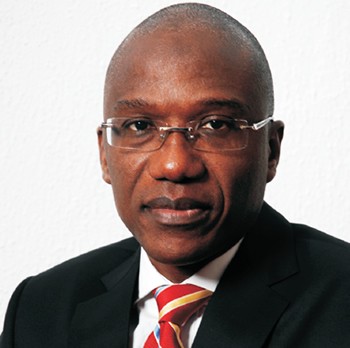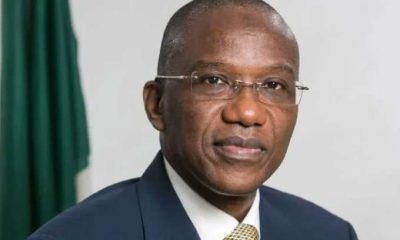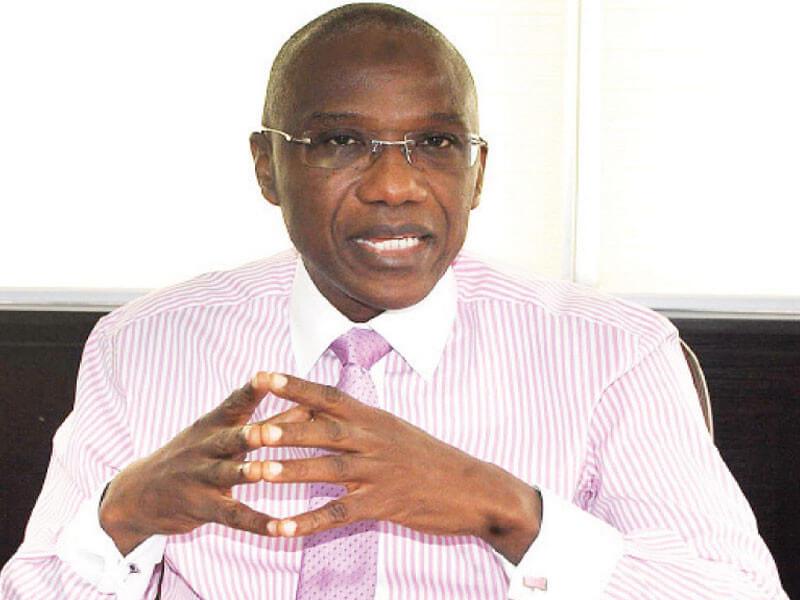Business
AMCON beats war drum, closes in on N5trn debtors’ assets

By Adebayo Obajemu
For the past two weeks, public discourse has shifted to more statutory powers given to the Assets Management Corporation of Nigeria, AMCON, and the renewed vigour and vitality which the agency is pursuing its debts recovery.
About two weeks ago, AMCON in a manner that betrayed its frustration and determination to pursue its debts recovery initiative, submitted a list of its top 1,000 debtors to the National Assembly as part of the strategy to give teeth to its debt recovery drive.
AMCON placed the total current exposure on all eligible bank assets at N4.4tn, adding that the market values of the assets had greatly plummeted below the valuation at the point of purchase due to the prevailing socio-economic meltdown, which has ,in effect, created much difficulties in executing sales transactions.
In a statement, it stated that a list of the “recalcitrant obligors” was submitted to the members of the House of Representatives Committee on Banking and Currency at a retreat of the committee in Lagos.
According to media reports, AMCON said that the 1,000 debtors were responsible for 90 per cent of the total debt of N4.4tn, translating to N3.9tn.
The said 1,000 debtors are those responsible for the big-ticket debts. Competent sources say many prominent Nigerians across different sectors of the economy and spheres of life are said to be on the list.
Findings showed that these categories of people and their companies are responsible for 90 per cent of the total current exposure on all eligible bank assets put at N4.4tn.
The AMCON Act makes provision for the extension of the tenor of the resolution cost fund and grants access to the Special Tribunal established by the Banks and other Financial Institutions Act 2020, which confers on AMCON the power to, among others, “take possession, manage, foreclose or sell, transfer, assign or otherwise deal with the asset or property used as security for Eligible Bank Assets, and related matters.”
The Chairman of the House of Representatives Committee on Banking and Currency, Mr. Victor Nwokolo, who received the list from the Managing Director/Chief Executive Officer of the corporation, Mr Ahmed Kuru, was quoted as saying that the Committee called for the list so that the National Assembly would know “those holding the country to ransom.”
While presenting the list, Kuru said, “To enable AMCON to succeed in its national call to duty, AMCON solicits the continued support of this distinguished committee.
Kuru added that with the support of the National Assembly and the judiciary, recovering the total current exposure on all EBAs might be possible before the corporations’ sunset period.
As a complement to the new law, Vice President Yemi Osinbajo has set up a task force to facilitate ways and means to recover over N5 trillion debts owed AMCON. The agencies are the Economic and Financial Crimes Commission (EFCC), Nigeria Financial Intelligence Unit (NFIU), the Independent Corrupt Practices and Other Related Offences Commission (ICPC), and the Federal Ministry of Justice.
AMCON was created for the purpose of efficiently resolving the Non-Performing Loan (NPL) assets of Nigerian banks and other related matters. By the AMCON Act 2010 enacted by the National Assembly of the Federal Republic of Nigeria, the corporation is empowered to dispose of managed assets of Nigerian banks.
Dr. Olufemi Omoyele, director of Entrepreneurship, Redeemers University voiced out criticisms to the innovations under the Act[3]. He said some aspects of the amendments are unconstitutional, adding that “Setting a time limit for courts to determine AMCON cases within six months violates the right to fair hearing and will prevent the judges from doing a detailed job.
AMCON was established on 19 July, 2010, when the President of the Federal Republic of Nigeria signed the AMCON Act into law. It was created to be a key stabilizing and re-vitalizing tool aimed at reviving the financial system by efficiently recovering the non-performing loan assets of Nigerian banks.
Mandate
Section 4 of the Act which encapsulates the mandate of the Corporation can be summarized thus: Enforcement and realization of assets owed to banks; management of the proceeds; and redemption of debt securities.
In furtherance of the mandate of the Corporation, it was conferred with special powers, such as powers to appoint a receiver, to take custody of debtor’s company, to attach and freeze debtors’ bank account, special powers to declare a debtor bankrupt and has special powers in winding up proceedings (which provides for a simpler winding up procedure).
Of recent, the corporation has stepped up its debts recovery efforts hitting high profile debtors.
Recall that about three months ago, AMCON said it took over the plush, palatial mansion of Abdulfatah Ahmed, the former two-time governor of Kwara State, over an alleged staggering indebtedness of nearly N5 billion.
AMCON said in a statement then that the action followed the order of Justice A.M. Liman of the Federal High Court, Lagos Division.
“Hon. Liman also ordered the freezing of the Bank Accounts of the former governor and his two companies including Trans Properties and Investment Limited and Trans It Consulting Limited in Suit No: FHC/L/AMC/01/2021,” the statement said.
“The former governor who is one of the founders of the newly established third force in Nigerian politics known as the Rescue Nigeria Project (RNP) is one of the high-profile obligors of AMCON.
“Despite holding one of the highly exalted political offices in the land, he remained recalcitrant over the repayment of his obligation.”
AMCON said that in compliance with the court order, the corporation through the Law firm of Robert Ohuoba of Robert Ohuoba & Co, one of the leading Asset Management Partners (AMPs) of AMCON who also received protective orders from the court, took possession of the mansion belonging to the former governor.
Jude Nwauzor, Head, Corporate Communications Department of the government debt recovery agency, described the enforcement as successful.
“AMCON had taken over the Non-Performing Loans of the former governor and his companies, Trans Properties and Investment Limited and Trans It Consulting Limited, from the former Intercontinental Bank, FinBank and Bank PHB during the first phase of EBA purchases, in line with its mandate under the AMCON Act,” Mr. Nwauzor added.
“All efforts to peacefully resolve the loan had been frustrated by the former governor who remained recalcitrant, which left AMCON no other choice than to seek justice in court.






